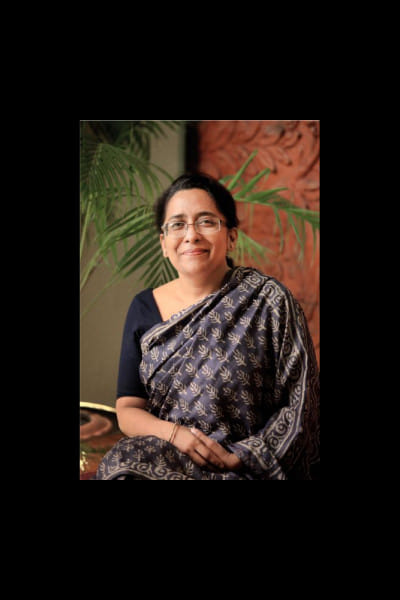“Women should have every opportunity to compete as equals” ... Luva Nahid Choudhury
Luva Nahid Choudhury is a personality of many talents. She is an architect, a serious practitioner of music, an avid art aficionado, and holds the position of Director General at Bengal Foundation -- a monumental organisation working tirelessly for the progress of arts in various forms. The extraordinary artiste-administrator recently spoke to The Daily Star, about the position in various fields of arts in the country, and more.
Holistically, how do you think girls are doing in the various forms of art in the country right now?
Luva Nahid Choudhury: We have always focused on the quality of the work and its programmatic fit - regardless of gender. I can attempt to answer from our experiences in our various programmes but, of course it would not necessarily reflect exactly the general status of things in the country.

At the classical music school, three young girls are taking lessons in the tabla out of a total of 22 students. The tabla, as I am sure you know, has typically been considered a male domain. In the dhrupad - another highly male dominated practice, female participation is over 50 percent. We also have a balance between the genders in the kheyal section, but kheyal is generally performed by both men and women.
In the case of recording Bangla (traditional) music over the past twenty years, there is an overwhelming majority of female singers. We have been showing fine art in our galleries for the last 15 years, and there the percentage of female practitioners would not exceed a fifth. We have just awarded a film-making grant to first-time film directors, and it has turned out that two out of the five who were awarded, are women. I must add that the jury had blind copies of the script. As I mentioned earlier, gender is not a factor that we generally consider in our deliberations.
However, in our publishing wing, there is a separate category for 'writing on women'. Of the 70 titles that have been published in total, five fall into this category. Of the 50-odd writers who we have published, about 10 are women.
You are at a decision-making position of possibly the biggest patron organisations of arts in the country. How important do you think it is for women to be in administrative positions -- particularly in the field of arts and entertainment?
Luva Nahid Choudhury: At Bengal Foundation we do seem to have more women than men in leadership positions. The Chairman, Abul Khair, is a strong believer in the capacity of women to deliver better. The majority of our management and executive positions are held by women. I do not think women should be confined to holding specific kinds of jobs. They should have every opportunity to compete as equals. What is most important is the capacity for development. I think women can demonstrate their capacity to develop, learn intelligently, accommodate and internalise knowledge very early in their lives, except that not many people seem to want to notice.
People express themselves through artistic and literary pursuits. Therefore, when there is room and the liberty to express oneself, both men and women will naturally gravitate towards art, music, writing, and other forms of the arts. The conventional ways of creating room are through education, bringing about social change and strengthening values. Such things require community engagement and cannot be done alone. The individual can however value and believe in herself. I have found the latter path more useful.

 For all latest news, follow The Daily Star's Google News channel.
For all latest news, follow The Daily Star's Google News channel. 



Comments